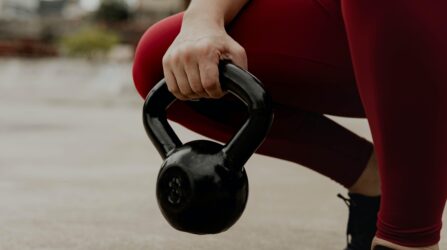-
Written by Dr. Rocio Salas-Whalen

Today we’re talking about Estrogen, the powerful female hormone and we’re also covering some of the low estrogen symptoms we may experience.
Here at Hormona, we want to make it easy for you to know about and understand the basics of certain hormones. As hormones have such an important role in our bodies and life understanding their impact is essential. To help you wrap your head around the hormones that have the biggest effect on you we’ve decided to give them each a dedicated post in easy to read, easy to understand language and descriptions.
Estrogen 101
The first hormone we’re meeting is Estrogen. You see, us, beautiful and powerful women have two main sex hormones: Estrogen and Progesterone and today’s focus is on the all-powerful estrogen.
What is estrogen and where is it produced?
Estrogen, sometimes spelt oestrogen, is a hormone that is made in your ovaries, adrenal glands and in the fat tissue. Estrogen is the hormone responsible for giving us our female physical features and for reproduction. I.e. it’s the hormone that gives us boobs and enables us to have babies. Also, it helps control our menstrual cycle by increasing the tissue in the uterus in preparation for implantation if there is fertilization, and if not, then the menstrual bleeding happens.
Now that we’ve covered the basics, which I’m sure most of you knew, let’s dive a bit deeper. Because our estrogen is doing a lot more than just giving us our beautiful features and enabling us to reproduce.
Estrogen function
Did you know that estrogen has other functions besides being a sex hormone?
Yes! We need estrogen to help control our cholesterol, to protect our bones and it also has a huge impact on our brain. I know your brain might not be the first thing you think of when you think of estrogen but there’s evidence that estrogen has profound effects on learning, memory, and mood as well as neurodevelopmental and neurodegenerative processes! So even more reason to ensure your estrogen levels are healthy.
But that’s not always as easy as it sounds because, throughout our lifetime, the levels of estrogen changes depending on our age. Yep, you heard us right, the levels of estrogen dwindle as we get older and this is when we experience some of the low estrogen symptoms.
Estrogen production throughout our life
Estrogens production is at its highest at puberty and starts declining in the late 40s or early 50s until it stops completely and that’s what we know as menopause.
So when estrogen is at its highest level of production, helps bring about the physical changes that turn a girl into a woman.
We call this time in life puberty and these changes estrogen brings about includes:
- The growth of breasts
- Growth of pubic and underarm hair
- The start of our menstrual cycles
When estrogen production then slows in our 40’s and 50’s (until it eventually stops when we hit menopause) I think we all recognize or at least have heard of some of the bodily changes low estrogen can result in.
Low estrogen symptoms
- Changes in your menstrual periods
- Hot flashes (suddenly feeling very warm) and/or night sweats
- Trouble sleeping
- Vaginal dryness
- Low sex drive
- Mood swings
- Dry skin
- Dry eyes
There could be different times and reasons other than menopause that can make our estrogen levels decline. Some of those are premature ovarian failure and perimenopause.
If you are having any of the mentioned low estrogen symptoms it is important to have your estrogen levels checked and analyzed by an endocrinologist.
How to treat low estrogen
In most instances, by giving your body back the estrogen it is not producing by itself chances are you can improve the symptoms and your quality of life.
We call this process of adding hormones to your body Hormone replacement therapy (HRT) and there are different ways to receive external estrogen. You will need to consult your specialist or doctor to receive HRT and HRT can be prescribed via pills, patches or creams. Your doctor will be able to advise you on which treatment and method of HRT is most suitable.
So what have we learned today? That estrogen is one powerful hormone and so making sure your estrogen levels are right is super important. Have you experienced any of the low estrogen symptoms? We’d love to hear about your experience!

-


Dr Singh is the Medical Director of the Indiana Sleep Center. His research and clinical practice focuses on the myriad of sleep.




